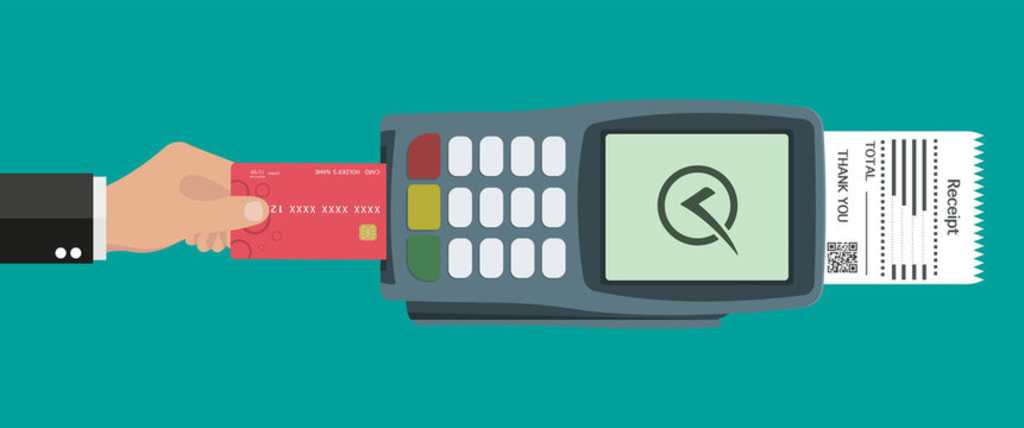Modernize Your Sales Process with Our POS System
POS System

POS software is a highly effective tool that can help you run your business more efficiently, reduce costs and make your customers happier. There are many benefits of using an integrated POS system including faster checkout, more accurate inventory management and sales reporting. Creating an effective, efficient POS system can make a big difference to your bottom line. We spoke to two experts in the industry to help you understand what features you should be looking for, and how best to implement them into your business.
POS systems are commonly used in retail, hospitality and service industries. Traditionally, they have been designed to process credit card transactions and print receipts. Modern POS systems can also track customer data and create financial reports, while many POS systems now simplify day-to-day business activities by capturing customer data, creating financial reports and analyzing sales and purchasing patterns.
6 Key Features to Look for in the POS System and Benefits:
1. Repair, buy, sell, rent:
POS is the fastest way to sell products and make money. Most business owners are afraid of scanning technology because they don't understand how it works, but after using the POS system you will realize how easy it can be. A sales transaction is the purchase or transfer of goods or services from a vendor's inventory.
2. Mobile POS :
Them POS system is a mobile device that can be used as a point of sale terminal. It is highly portable and allows you to attach other peripheral devices such as barcode scanners and receipt printers, which makes it an ideal solution for your business. mPOS are very well used for entrepreneurs, small retail stores, pop-up shops, quick-serve establishments and small businesses.
3. Multi-store Management :
Alice POS is ideal for network stores such as franchises, buying groups and corporate networks. With a POS system that manages multiple stores, it's possible to manage your data and optimize inventory for each store. With multi-store management, it is possible to customize each type of store according to their needs and manage them from a central location.
4.Flexible Payments and Returns:
While selecting a POS system the retailers should keep in mind that , its main principle should be to choose one that accepts multi device payments at one time. In addition to accepting all credit cards via magnetic strip, chip or contactless payment, you will probably want to look for a POS that supports mobile app payments. There are many examples where retailers also need a system that can split payments like this example where a customer may have a $60 gift card to apply toward a bigger purchase so the balance will need to be paid off with another payment.
5. Sales Reporting and Analytics :
In today's scenario retail companies are lightly into track sales and reporting are much more important than ever before. POS software tracks every transaction your register makes so you can see how much money was made, and what products people buy most often. The most sophisticated POS packages analyze these numbers so you'll know exactly what products are selling well at your store.
Insight small-scale business owners use sales and their product reports key-features to define Retail decisions and uncover their customer's buying patterns. Some products may only sell at specific times of the year even if they don't, of course seem like seasonal items.
6. Inventory and Stock Management :
Even the smallest niche stores can struggle with managing their inventory. If you run any kind of mid-sized establishment, then your employees might dread taking stock. Retail POS software apps with inventory management features will automatically deduct the number of items customers purchase from a database that keeps track of your store's inventory.
Below is an overview of the leading types of POS systems to help you understand which may be right for your business:
1. Mobile point-of-sale systems:
Smartphone and tablet POS services can process payments and manage some inventory and customer information. In most cases, the app is free in exchange for payment processing. The best payment processors will send you the credit card reader for free. This is a suitable POS option if you do not manage a lot of inventory and you need to be mobile. Most will work with a portable receipt printer, or you can email receipts to your customers directly from the app.
2. Tablet POS systems:
iPad and Android point-of-sale solutions are increasingly popular, since they require minimal upfront investment and you can often use a tablet that you already own. Some tablet POS services are “free” with credit card processing; others require a low monthly subscription fee but allow you to choose your own credit card processor. Many support compatible hardware such as barcode readers, cash drawers and tablet stands.
3. Terminal POS systems:
Terminal point-of-sale systems are the type you are used to seeing at the counter. While they are hardware- and software-based, most still require access to the internet and might even use cloud-based software. These systems make it easy to restrict employee internet access, since they can be configured to run only the POS software. Restaurant solutions can integrate with tableside Wi-Fi portable devices, kitchen printers, patron tablet ordering and online ordering. Retail versions can include extensive inventory tools, label printing and e-commerce integration.
4. Self-service kiosk POS:
Most kiosk POS systems are specialized solutions for a specific purpose. For example, you may offer a self-service kiosk for patrons to purchase movie tickets, or to manage parking space time and payments. Another helpful option is setting up a few kiosks in your large retail store to let your customers look up pricing and product availability. Other non-POS uses include patient check-ins and human resources (such as accepting employment applications).
5. Multichannel POS systems:
A Multichannel Point of Sales (POS) system is a powerful tool that allows businesses to sell their products through multiple channels, such as online, mobile, and in-store. This type of POS system provides a centralized platform for businesses to manage all their sales channels, inventory, and customer data, making it easier to streamline operations and improve efficiency.
Advantages of a POS System:
1. Streamlined sales process: A POS system automates the sales process, making it faster and more efficient. This can help businesses to serve more customers in less time and increase revenue.
2. Accurate inventory management: POS systems provide real-time updates on inventory levels, making it easier to manage stock levels and avoid stock outs or overstocking. This can help businesses to reduce waste and increase profits.
3. Improved customer experience: POS systems can help businesses to provide a better customer experience by providing faster checkout times, tracking customer purchase history, and offering loyalty programs.
4. Enhanced data analysis: POS systems collect valuable sales data that businesses can use to analyze trends, identify opportunities for growth, and make informed business decisions.
5. Increased security: POS systems offer greater security compared to traditional cash registers, as they can encrypt sensitive data and track all transactions. This can help businesses to reduce the risk of fraud and theft.
6. Customizable features: POS systems can be customized to meet the specific needs of businesses, with options for integrating with other software, adding new payment methods, and generating customized reports.
About the Creator
DigiPrima Technologies
Digiprima Technologies is the partner for all your need of various IT services including Web presence, Mobile application, document management and Process. visit- https://www.digiprima.com/






Comments
There are no comments for this story
Be the first to respond and start the conversation.